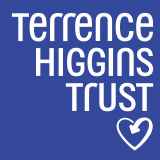Overdosing
These can be signs someone has taken too many drugs or overdosed:
- feeling very confused, agitated or aggressive for more than 15 minutes
- chest pain that feels like a heart attack
- a seizure (which may be like an epileptic fit)
- pale skin, blue lips or blue fingernails
- making gurgling, snoring or choking sounds
- no reaction to loud noise or being gently shaken, unable to wake up
- breathing is shallow or disrupted
- pulse is slow or very faint.
If someone is conscious:
- If they start to panic and breathe fast, take them to a quiet place where you can sit with them and reassure them they’ll soon be OK. Get them to breathe deeply and slowly.
- Give them sips of water (nothing else).
- Sometimes a cold compress, like ice wrapped in cloth, to the head helps.
- Try not to leave them alone.
- Try not to let them fall asleep or lose consciousness – walk them around.
- If their symptoms are getting worse, ask someone else to get medical help.
If someone is unconscious
If they’ve been taking G, read our page on going under. For everything else:
If someone is no longer conscious don’t hope they’ll eventually come round or sleep it off – if someone is unconscious there is always the risk of death.
Lay the person on the floor in the recovery position. To place someone in the recovery position:
- Kneel on the floor on one side of the person.
- Place the arm nearest you at a right angle to their body with their hand upwards towards the head.
- Tuck their other hand under the side of their head, so that the back of their hand is touching their cheek.
- Bend the knee farthest from you to a right angle.
- Roll the person onto their side carefully by pulling on the bent knee.
- The top arm should be supporting the head and the bottom arm will stop you rolling them too far.
- Open their airway by gently tilting their head back and lifting their chin, and check that nothing is blocking their airway.
- Stay with the person and monitor their breathing and pulse continuously until help arrives.
- If any injuries allow you to, turn the person onto their other side after 30 minutes.
Calling 999
Although you might worry about phoning an ambulance by dialling 999, not doing so could cost someone their life and put you in a far more serious situation.
Don’t leave someone alone unless you have to get help. While you’re gone they could move out of the recovery position.
If you must leave them, make sure it’s not easy for them to roll over onto their back.
When the ambulance arrives, tell them (if you can) what the person has taken.
They won’t tell the police, your friend’s family or anyone not involved in their clinical care, that your friend has been taking drugs.
‹‹ Previous: Reducing risks with G
Published: 30/08/2018
Next review: 30/08/2021



